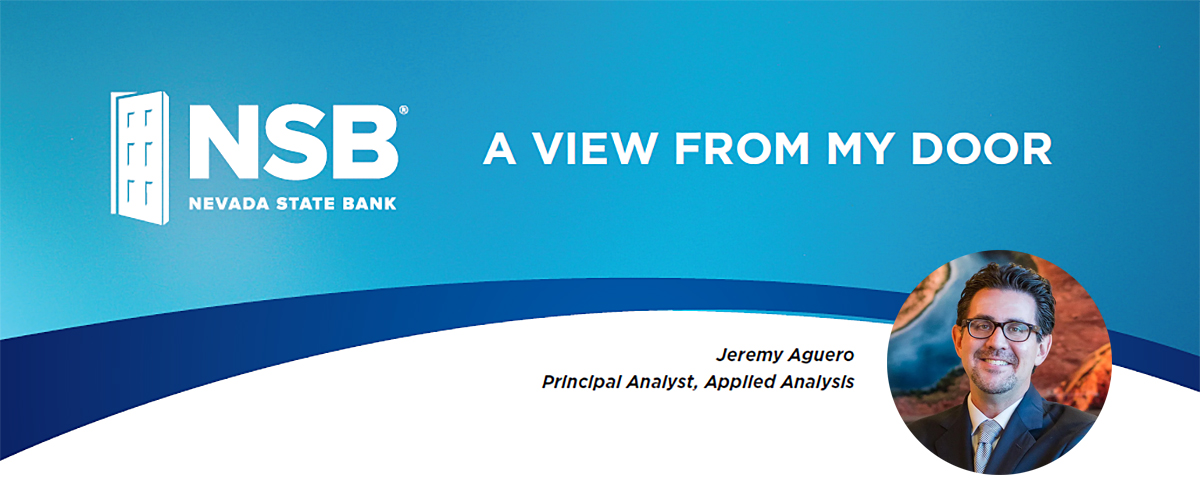
Every generation seems utterly convinced they’ve scored the golden ticket to humanity’s final performance, like Charlie proudly strolling into Willy Wonka’s chocolate factory. Predicting the apocalypse has become our favorite national pastime, comfortably ahead of binge-watching “The Office” for the fifteenth time, restarting diets every Monday and passionately debating politics over the Internet with strangers whose primary qualification is “TikTok influencer.” To be clear, this isn’t exactly a new trend. We’ve had Nostradamus penning end-of-world prophecies so cryptic they make IKEA furniture instructions look like a children’s picture book, the Mayans mysteriously hitting “unsubscribe” halfway through their calendar, countless asteroids promising a near-collision with Earth and, of course, Y2K — still the biggest letdown since Geraldo Rivera cracked open Al Capone’s empty vault.
Lately, our panic du jour revolves around economic doomsdays, with pundits declaring we are headed into an “economic nuclear winter.” Sure, economic downturns are inevitable, but forecasting corrections as the financial apocalypse has all the accuracy of a Tinder profile picture. Economies grow for very similar reasons; they decline for very different ones. But, economic cycles are about as predictable as Starbucks releasing pumpkin spice lattes each fall.
Take the Great Depression, for instance. Banks collapsed quicker than a Golden Bachelor engagement, breadlines became as crowded as Apple store lines on iPhone release day and experts confidently told President Roosevelt that abandoning the gold standard would sink Western civilization faster than Brian Dunkleman’s career after leaving American Idol. It was bad – really bad — but capitalism didn’t just rally, it bounced back like Keith Richards after an all-nighter.
Then came the 1970s, giving us stagflation — a bizarre economic paradox of high unemployment and inflation reminiscent of disco: simultaneously boring yet extravagantly inflated. Analysts famously proclaimed the “Death of Equities,” implying stocks were as extinct as dodo birds after sailors discovered they tasted like chicken. Fast forward a few years, and equities were partying harder than Patrick Mahomes and Travis Kelce after Super Bowl LVIII, leaving financial prophets as embarrassed as Y2K bunker-builders who woke up on January 1st with 200 pounds of beans and no apocalypse.
Cue 2008’s financial meltdown, when Wall Street imploded spectacularly and pundits smugly declared capitalism dead, shouting, “This time it’s really, absolutely, unequivocally different!” Well, guess what — it wasn’t. Capitalism executed its standard comeback routine faster than a Marvel character after the credits roll, leaving doomsayers shifting uncomfortably in their chairs like guys who realize halfway through karaoke they’re tone-deaf.
Then COVID-19 emerged, billed as the economic asteroid to end all asteroids. Predictions ranged from global depression to a Mad Max barter economy based solely on toilet paper and hand sanitizer. But economies, much like cockroaches and the Rolling Stones, refused to quit. Massive stimulus checks and infinite Zoom calls later, even a global pandemic couldn’t deliver the apocalypse we’d been anxiously promised.
Today’s supposed apocalyptic threats — tariffs, trade wars, erratic policy shifts — get announced with the theatrical urgency of Nicolas Cage explaining why he stole the Declaration of Independence. Social media has effectively handed Chicken Little a megaphone, transforming economic corrections into clickbait headlines that scream doom louder than Gordon Ramsay encountering an undercooked steak. Yet, these economic scares usually prove about as predictable as a Hallmark Christmas movie: some initial drama, predictable twists and ultimately everyone feeling slightly embarrassed for expecting a different ending.
Economist Paul Samuelson nailed it when he quipped, “Economists have predicted nine of the last five recessions.” Betting on economic collapse consistently ranks between picking lottery numbers based on fortune cookie wisdom and taking stock tips from the Uber driver who claims Bitcoin “changed his life.”
So next time your newsfeed lights up with hysterical forecasts about impending economic Armageddon, pop your popcorn, sit back and enjoy another inevitably anti-climactic spectacle. Betting on the end of the world — economic or otherwise — is reliably the worst wager in history. But watching these dramatic predictions flame out? Now that’s entertainment even Netflix can’t deliver.


